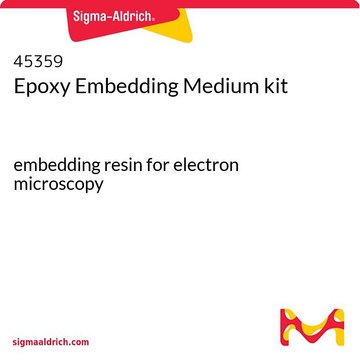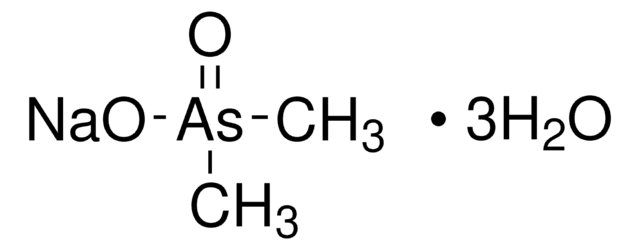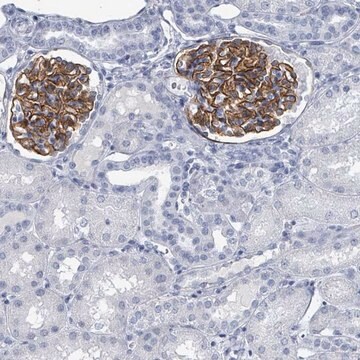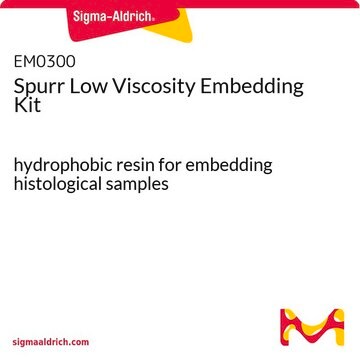75632
Osmium tetroxide solution
suitable for electron microscopy, 4% in H2O
Sinonimo/i:
Osmium(IV) oxide
About This Item
Prodotti consigliati
Forma fisica
solution
Impiego in reazioni chimiche
reagent type: oxidant
Concentrazione
4% in H2O
tecniche
electron microscopy: suitable
Colore
colorless to yellow
pH
6.0-8.0
Densità
1.0 g/mL at 20 °C
applicazioni
hematology
histology
Temperatura di conservazione
2-8°C
Stringa SMILE
O=[Os](=O)(=O)=O
InChI
1S/4O.Os
VUVGYHUDAICLFK-UHFFFAOYSA-N
Cerchi prodotti simili? Visita Guida al confronto tra prodotti
Applicazioni
Azioni biochim/fisiol
Confezionamento
10 mL in ampule
Altre note
Avvertenze
Danger
Indicazioni di pericolo
Classi di pericolo
Acute Tox. 2 Dermal - Acute Tox. 4 Inhalation - Acute Tox. 4 Oral - Eye Dam. 1 - Skin Irrit. 2
Codice della classe di stoccaggio
6.1B - Non-combustible acute toxic Cat. 1 and 2 / very toxic hazardous materials
Classe di pericolosità dell'acqua (WGK)
WGK 1
Punto d’infiammabilità (°F)
Not applicable
Punto d’infiammabilità (°C)
Not applicable
Dispositivi di protezione individuale
Faceshields, Gloves, Goggles, type ABEK (EN14387) respirator filter
Certificati d'analisi (COA)
Cerca il Certificati d'analisi (COA) digitando il numero di lotto/batch corrispondente. I numeri di lotto o di batch sono stampati sull'etichetta dei prodotti dopo la parola ‘Lotto’ o ‘Batch’.
Possiedi già questo prodotto?
I documenti relativi ai prodotti acquistati recentemente sono disponibili nell’Archivio dei documenti.
I clienti hanno visto anche
Il team dei nostri ricercatori vanta grande esperienza in tutte le aree della ricerca quali Life Science, scienza dei materiali, sintesi chimica, cromatografia, discipline analitiche, ecc..
Contatta l'Assistenza Tecnica.








